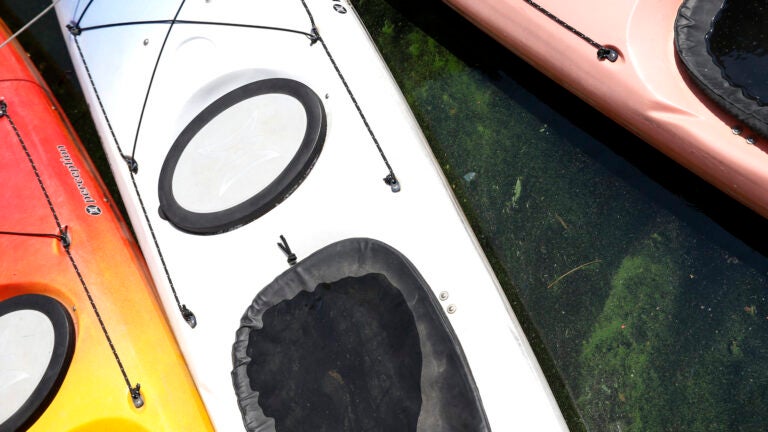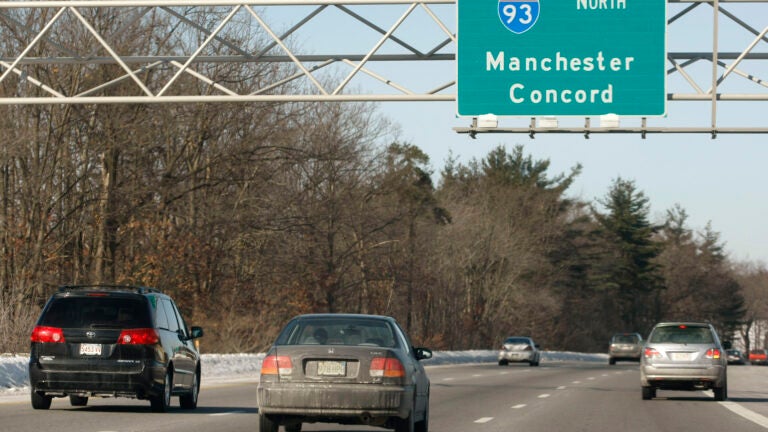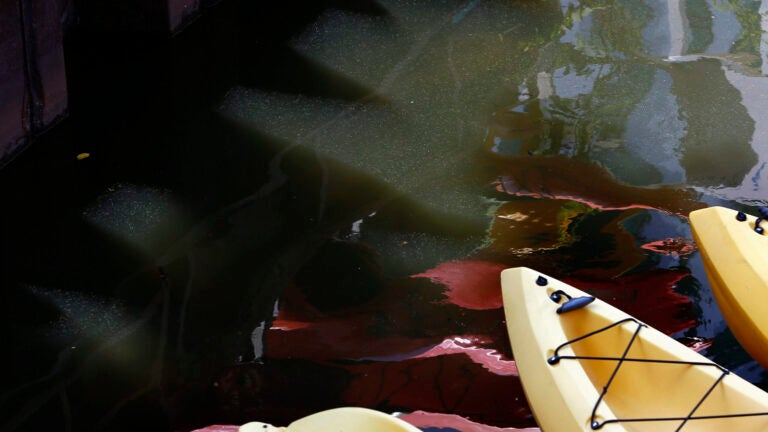Charles River group warns that the toxic blue-green algae is back
"Do not let your dogs swim in this area, cyanobacteria blooms are toxic to pets."

Keep your dogs out of the Charles River; the toxic algae is back again.
Related Links
The Charles River Watershed Association issued a public health advisory Thursday afternoon for cyanobacteria blooms, the bright blue-green algae that is potentially lethal for pets, found between the Mass. Ave Bridge and the Museum of Science.
“Do not let your dogs swim in this area, cyanobacteria blooms are toxic to pets,” the conservation group tweeted.
.@MassDPH recommends that people and pets avoid contact in areas of algae concentration and rinse thoroughly in the event of contact. DPH requires at least two samples, one week apart, to recommend rescinding the advisory pic.twitter.com/d0rRImznGq
— Charles River Watershed Association (@charlesriver) June 25, 2020
It’s hardly the first time the algae has appeared in the Charles River; and last summer, the blooms made national headlines after several dogs in southern states died after swimming in water containing the algae.
Veterinarians says such severe reactions are rare. Still, the Centers for Disease Control and Prevention recommends immediately rinsing off your dogs if they drink or swim in water containing the algae, which produces “among the most powerful natural poisons known.”
Pet owners are also advised to watch for symptoms, which include vomiting, diarrhea, weakness, and difficult breathing, and can arise anywhere between 15 minutes and several days of exposure.
Boaters should also avoid contact with the water between the Mass. Ave Bridge and Museum of Science, the CRWA said Thursday. For humans, the health effects are less serious, but can range from skin rashes to fever-like symptoms or even death, according to the Environmental Protection Agency.
People are likewise advised to rinse off with fresh water in they come in contact with cyanobacteria-containing water.
In accordance with the advisory Thursday, the CRWA said that red flags are being flown at the Charles River Yacht Club, Union Boat Club, Community Boating, and Paddle Boston at Kendall Square.
Massachusetts health officials requires two testing samples, at least one week apart, before the advisory can be rescinded.







Conversation
This discussion has ended. Please join elsewhere on Boston.com